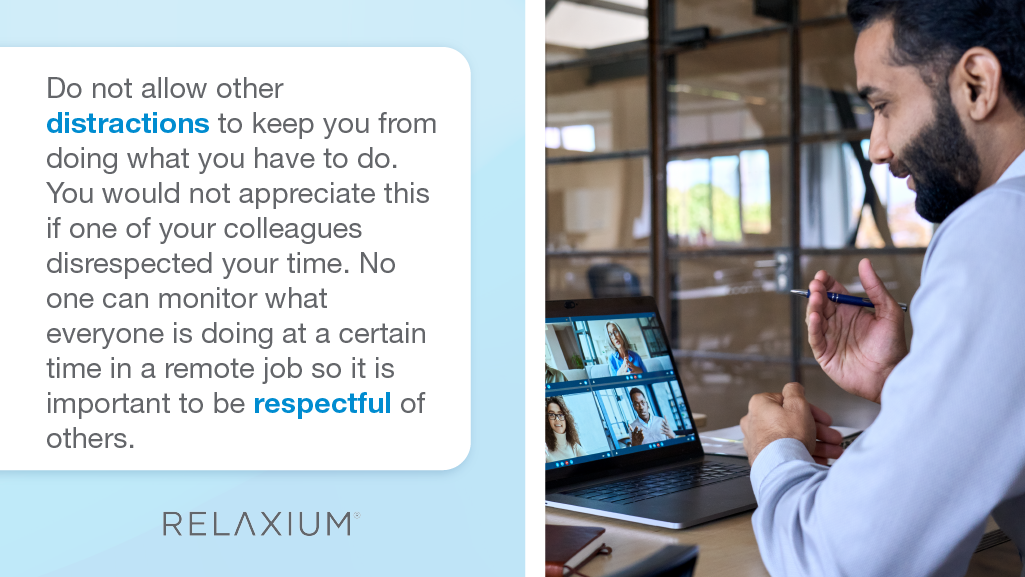Everyone’s lives shifted in early 2020; a global pandemic has that kind of effect. Most were used to coming to work every day, and suddenly that was not possible. While a lot of people were happy about this adjustment because it meant some time off, no option is ever perfect.
Working from home used to be an option, but now it is becoming a more fully integrated schedule in many workplaces. It seemed that at first, people were very happy about the adjustment. In fact, there was a The New York Times article written in 2020 that took from a poll conducted by Gallup which found that “60 percent of Americans working from home would prefer to work remotely “as much as possible” after restrictions are lifted, with 40 percent saying they preferred returning to the workplace.”
This made sense considering there are many parts of a remote job that people enjoy. No commute saves gas, which is more sustainable for the environment, people aren’t spreading sickness like before and you now have more time for other activities like working out or spending time with the ones you live with.
Like many things though, there are always downsides. Now that we have been existing for a couple of years following a pandemic, we are starting to see the effects working from home has had.
For some, it is a mental health concern. Being pent up in one location for too long will no doubt create negative effects on anyone. This is especially true for people that lived alone during the pandemic. For some, going to work was their time to be out and be social.
A study conducted by the American Psychiatric Association took a survey of 1,000 remote workers between March 26 and April 5 of 2021. The majority of the employees surveyed came back with the response that they have experienced negative mental health impacts; including feelings of loneliness and not being able to get away from that “end of work” feeling.
If you agree with any of this information, we are hoping you will take some of these tips and use them to cope with any negative feelings about working from home.

#1 DO NOT work from your bedroom
We have stated this in a previous blog but it is very important that we reiterate it. Your bedroom is your place of comfort. It should be the place in your living area where you can easily decompress and relax. If you choose to do your work in your room, you will start to link that stress from work to that particular room.
Whether it be your kitchen or living room, consider making a space in your living place that is specifically for work. Not only will it help you mentally, but it can also become that little office away from your true office. All of your work material can be in one place, and all that stress from your job can float in that one area.
At Relaxium, we want to prioritize the most consistent relaxation and sleep, so let’s maintain this as much as possible by avoiding doing work in our bedrooms. Bedrooms are for sleep!
#2 Consider wearing work attire instead of sweats
Now at the beginning of the pandemic, it was totally understandable that no one was going to want to dress in work attire from home. Not being present in your workplace means no dress code. While this is true, there is something to be said about what you wear and how that affects how you feel.
Dress for success is no joke. No doubt when you put on that nice business attire you feel much more professional and put together. With that in mind, you then correspond that to your work.
If you think what you wear has no effect on your mentality then disregard this tip, but truly consider the difference in your work ethic and motivation when wearing comfy sweats. Maybe try wearing a nice outfit from home once or twice a week and see how it makes you feel!

#3 Set deadlines
Just like before the pandemic when you would have to worry about getting up at a certain time to make it to work on time, try to stick with these habits. If you create a list to help organize and set forth the plan you have to complete by the end of the day, no doubt you will go to bed feeling like you have had a productive day.
They can be as simple as getting X, Y, and Z finished before noon. Getting up when you have to and getting work done whenever may start an unproductive pattern of work ethic that may end up stressing you out in the future.
If you ever struggle to make these types of lists, consider a focusing supplement. Relaxium has a supplement known as Relaxium Focus Max, which has been designed to promote sharper focus, boost brain performance, and supply vital nutrients.
#4 Stay off your technological devices (that are not required for work)
Just like how you wouldn’t text while on the job, avoid doing any of this at home. If you allow yourself to be distracted by anything besides your job your focus will be shifted.
It is always best to try to get all tasks finished before taking that break. Find a good stopping point to take a lunch break, where you can then look at your phone or other devices.

#5 Consider your colleagues
Just because you are now working from home and cannot be as supervised as before, does not mean you should ignore that your work is needed at certain times. Making time for meetings and getting projects done by a certain deadline are still crucial.
Do not allow other distractions to keep you from doing what you have to do. You would not appreciate this if one of your colleagues disrespected your time. No one can monitor what everyone is doing at a certain time in a remote job so it is important to be respectful of others.
Try to work with the new “normal”
While many other jobs are fully back in person, many are not. Those remote now have an entirely new system they must get used to, which of course means there will be quirks to fix. As long as you try to follow some of these tips, no doubt you will have a much more clear mind at work which will only help you grow your personal success.
To restful and healthy days ahead.
The Relaxium Team
*These statements have not been evaluated by the Food & Drug Administration. This product is not intended to diagnose, treat, cure, or prevent any disease.
Sources:

